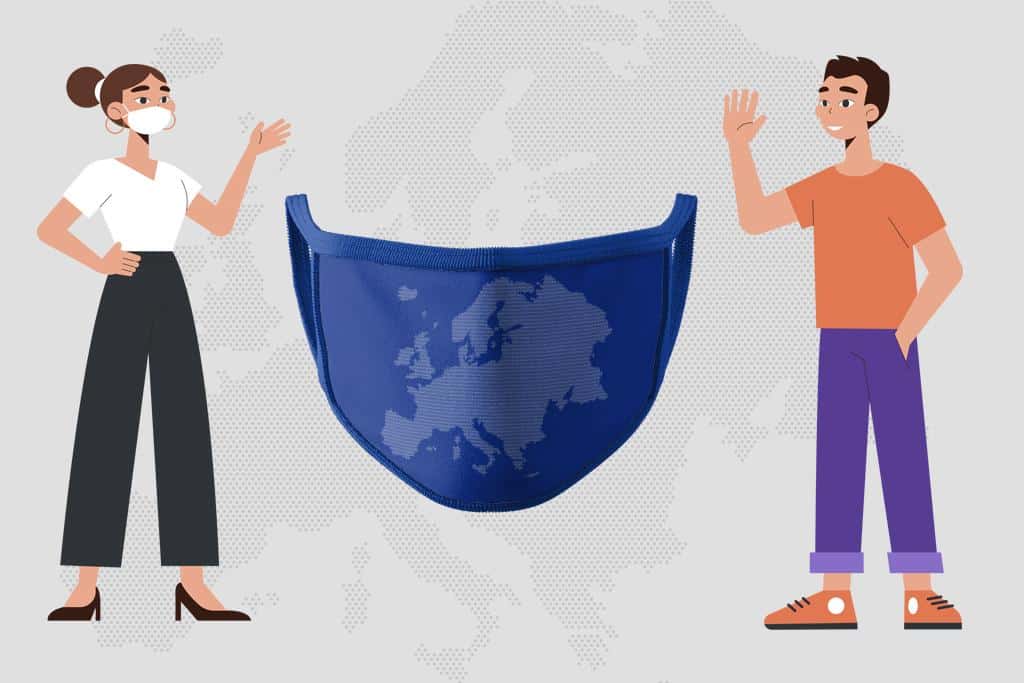
Europe remains ‘divided’ overpolicy of face masks during COVID-19
Last updated on March 1st, 2023 at 07:00 am
With European economies reopening their business activities across several regions, citizens are going on a shopping spree as they flock to supermarkets and malls. However, as European consumers enjoy prancing through store racks and shelves, several countries in the bloc have made it mandatory for people to wear face masks in public.
Even since the COVID-19 outbreak began to take over nations, the World Health Organisation (WHO) had advised the public to wear face masks or coverings in public in a bid to control the virus transmission. However, European governments have had a difference in their approaches towards the policy of mask-wearing, social distancing, and even lockdown and restrictive measures to combat the pandemic outbreak.
While countries like Slovakia, Czech Republic, Bosnia made it compulsory for people to wear face-coverings during initial cases of infections, the British government has had ambiguous policies towards public safety amid the global pandemic. Evidently, with contrasting approaches of the bloc members, Europeans also adopted varied outlook towards the need for wearing a face mask.
According to data collected by YouGov and the Institute of Global Health Innovation (IGHI) at Imperial College London on the attitude and response of the 29 countries to the COVID-19 crisis, there was a split difference in perspectives of Europeans towards the need for mask-wearing in public. The study results suggested that citizens of Nordic countries like Finland, Denmark and Sweden, on one hand, were less likely to wear a mask in public during the pandemic. On the other hand, in Western European countries like Spain, Italy, Germany, and France, citizens were unwilling to wear a mask when the pandemic outbreak initially began. However, with a surge in infected cases and lockdown restrictions, the number of people wearing face coverings in public rose to over 80% recently.
Besides these European countries, the UK also saw a segmented outlook towards the importance of wearing face-coverings in public to control the spread of COVID-19 droplets. While earlier face masks were compulsory on public transport in England, the Boris Johnson government recently made it mandatory for Brits to wear face-coverings in shops and supermarkets from July 24. Failing to comply with the new rules to control virus transmission will attract a fine of up to £100, as the government announcement.
In Spain, one of the worst-affected countries from the pandemic, wearing a mask in public is still being debated among people even as there is a potential rise in new cases. European governments have been divided in their opinions and policies towards face-covering measures, like any other precautionary rules against the pandemic. Interestingly, rising new waves of Coronavirus infections in Eastern European countries like Croatia and Hungary have led to the imposition of new restrictions and preventive measures including compulsory use of face masks, travel bans, and quarantines.
Also Read:- Non Lethal Weapon Industry Misuses Workers For Profitable Gains




